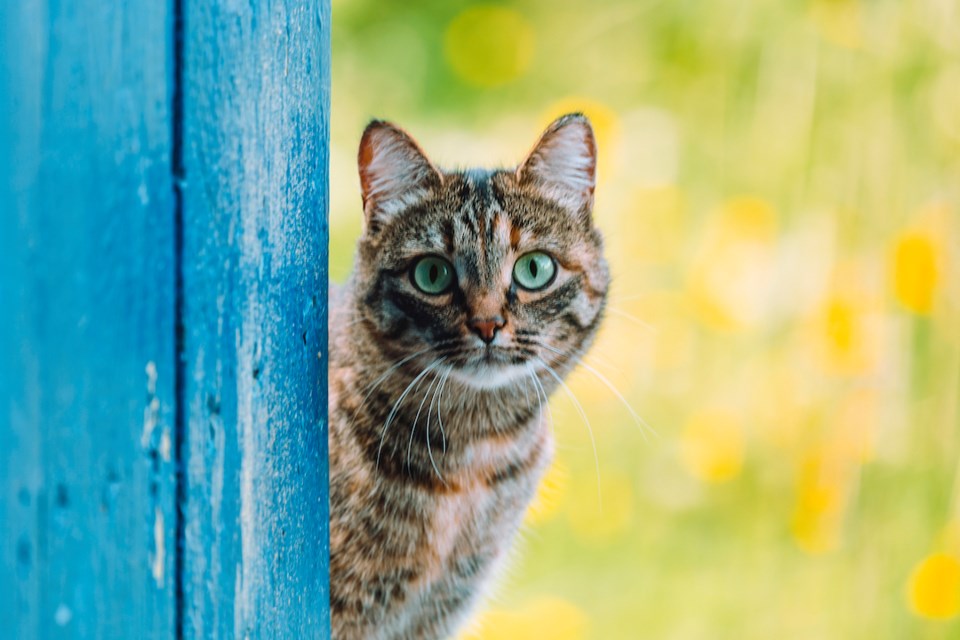Coun. Annemarie De Andrade’s call to have rules around cat and animal roaming added to Gibson’s dog licensing bylaw received measured support at the Dec. 7 Committee of the Whole meeting. The group agreed to ask council to direct staff to draft the required bylaw amendments but noted that the action was not identified as a high level 2022 priority.
While De Andrade’s report to the committee focused on the effects of free-roaming cats, she agreed with committee suggestions on making any bylaw amendment inclusive of controls on other types of household pets as well, such as rabbits.
At the meeting, concerns were also expressed by committee members about the capacity of town staff to research, write and enforce another bylaw. Mayor Beamish voiced concerns about imposing additional rules and costs on residents. Coun. David Croal suggested that the Town only move forward with such an initiative when it could be coordinated with the Sunshine Coast Regional District, as roaming animals do not recognize jurisdictional boundaries.
De Andrade cited damages that free roaming cats cause to the area’s biodiversity, highlighting how they kill and maim birds and other wildlife. She pointed out that the management plan of the Atl’ka7tsem/Howe Sound Biosphere Region, which includes Gibsons, states that “biodiversity conservation within the region is understood and preserved for future generations.”
“We have to face the fact that pet cats are predators, and we have to take responsibility for that,” Coun. Aleria Ladwig stated.
De Andrade also identified a variety of risks to human health posed by the waste that cats allowed to roam free outdoors deposit in gardens and children’s play areas.
The proposed bylaw amendment, in De Andrade’s opinion, would not only regulate pets but help protect them. She said that cats restricted to living indoors face reduced health problems and safety risks when compared to those allowed to roam outdoors.
According to De Andrade’s report, the adoption of cat or animal responsibility bylaws is a growing trend in Canadian municipalities. Within B.C., she noted that Oak Bay, Victoria, Esquimalt, Dawson Creek, Creston, and Nanaimo have similar bylaws.
Another part of her request was that an education and outreach campaign explaining the benefits of the bylaw change be developed and delivered while the bylaw amendments work their way through the Town’s legislative process.
“It is our responsibility to steward wildlife and the environment, improve cat welfare, protect human health and prevent neighbour’s conflict over cat and animal issues,” De Andrade stated. She said that in her view, implementation of a bylaw that includes rules regarding responsible pet ownership was “long overdue.”



